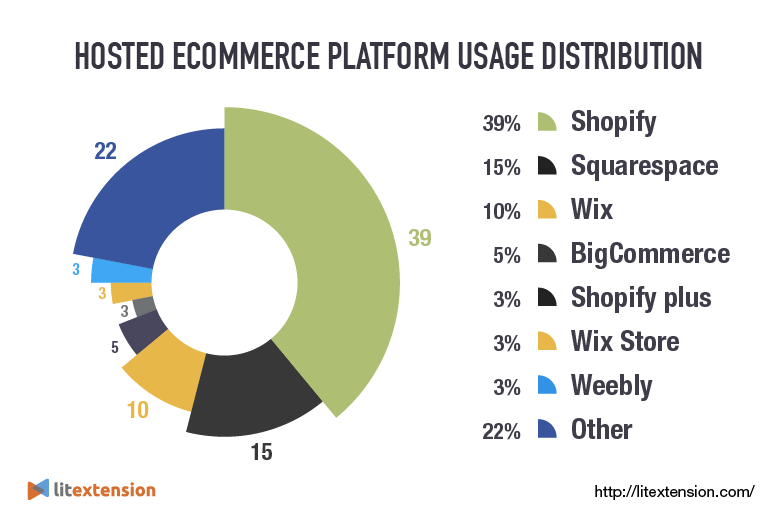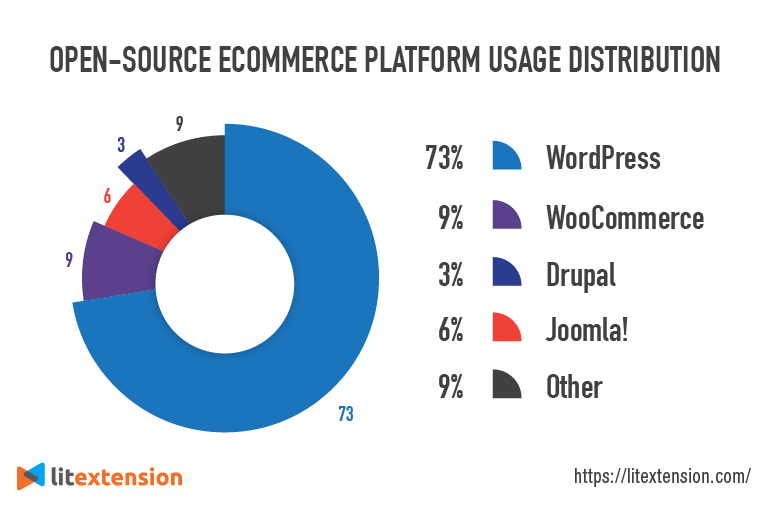We understand that selecting the right CMS platform can be challenging, especially with today’s many options. In this article, we’ll explore the key differences between open source vs self hosted platforms to help you make an informed decision.
Hosted Platforms

Hosted platforms offer complete solutions to set up online stores without technical expertise. The provider handles hosting, maintenance, security, updates, and support, freeing you to focus on running the business.
Self-hosted platforms require purchasing a web hosting service, providing complete website control, and adding necessary features. Hosted platforms are easy to set up, secure, scalable, and offer top-notch support, with cons such as limited customization options and ongoing monthly fees.
Key Features of Hosted Platforms
Easy to set up
Hosted platforms are designed to be easy to set up, with pre-built templates, drag-and-drop editors, and intuitive interfaces.
Security
Hosted platforms provide top-notch security, with regular updates, SSL encryption, and PCI compliance, ensuring your customers’ data is safe.
Support
Hosted platforms offer customer support with dedicated teams to assist you with any technical issues, questions, or concerns.
Scalability
Hosted platforms can scale with your business as it grows, with features like unlimited bandwidth, storage, and product listings.
Pros and Cons of Hosted Platforms
Open-Source Platforms

Open-source platforms are self-hosted, providing complete control of code, design, and functionality but requiring more technical knowledge to maintain, set up, and customize.
They are free to use, customizable, and have community support. They offer greater flexibility and customizability, complete control over code, design, and functionality, community support, and no initial investment cost. However, they require technical knowledge, ongoing maintenance, updates, security patches, and lower security than hosted platforms.
WordPress is one of the most popular open source solutions for building a website. WordPress is a content management system (CMS) that allows you to create and manage your website without writing any code. It is also very flexible and customizable, making it an excellent choice for beginners and advanced users.
Key Features of Open-Source Platforms
Customization
Open-source platforms allow full customization of the website’s code, design, and functionality, giving complete control over the online store.
Community Support
Open-source platforms have a community of developers who can support, guide, and assist with technical issues.
Cost-Effective
Open-source platforms are free to use, which can significantly reduce the initial investment cost.
Pros and Cons of Open-Source Platforms
Open Source vs Self-Hosted: Which One is Best for Your Website?
Several factors must be considered when deciding between open source and self-hosted solutions. Here are some of the most important things to think about:
- Cost: Open source solutions are free, while self-hosted solutions require you to purchase a license or subscription.
- Ease of use: Open source solutions are often more accessible, while self-hosted solutions can be more difficult for beginners.
- Flexibility: Open source solutions are often more flexible and customizable, while self-hosted solutions offer more control over your website.
- Support: Open source solutions are typically supported by a community of developers, while self-hosted solutions often come with dedicated support.
Conclusion
Choosing between open source and self-hosted solutions will ultimately depend on your specific needs and budget. Open source is probably the best choice if you are looking for a free and flexible solution. If you need more control over your website and are willing to pay for it, a self-hosted solution may be the way to go.
Overall, hosted platforms are more user-friendly and secure, while open-source platforms are more customizable and cost-effective. We hope this article helps you decide and choose the CMS that best suits your business needs.
Open Source vs Self-Hosted FAQs
Hosted means your website is stored on someone else’s server, while self-hosted means you store your website on your server.
Self-hosting may offer more control and flexibility but requires more technical knowledge and maintenance.
Self-hosted means storing your website on your own server or computer.
Hosted means your website is stored on someone else’s server, while non-hosted means no hosting is involved, such as a static site.
Disadvantages of self-hosting include higher technical requirements, maintenance costs, and potential security risks.
The advantages of self-hosting include more control, flexibility, and customization options.
Yes, you need a host to make your website accessible on the internet.
If you don’t host your website, it won’t be accessible online.
Hosting costs vary depending on the provider and the resources needed but can range from a few dollars to hundreds per month.



